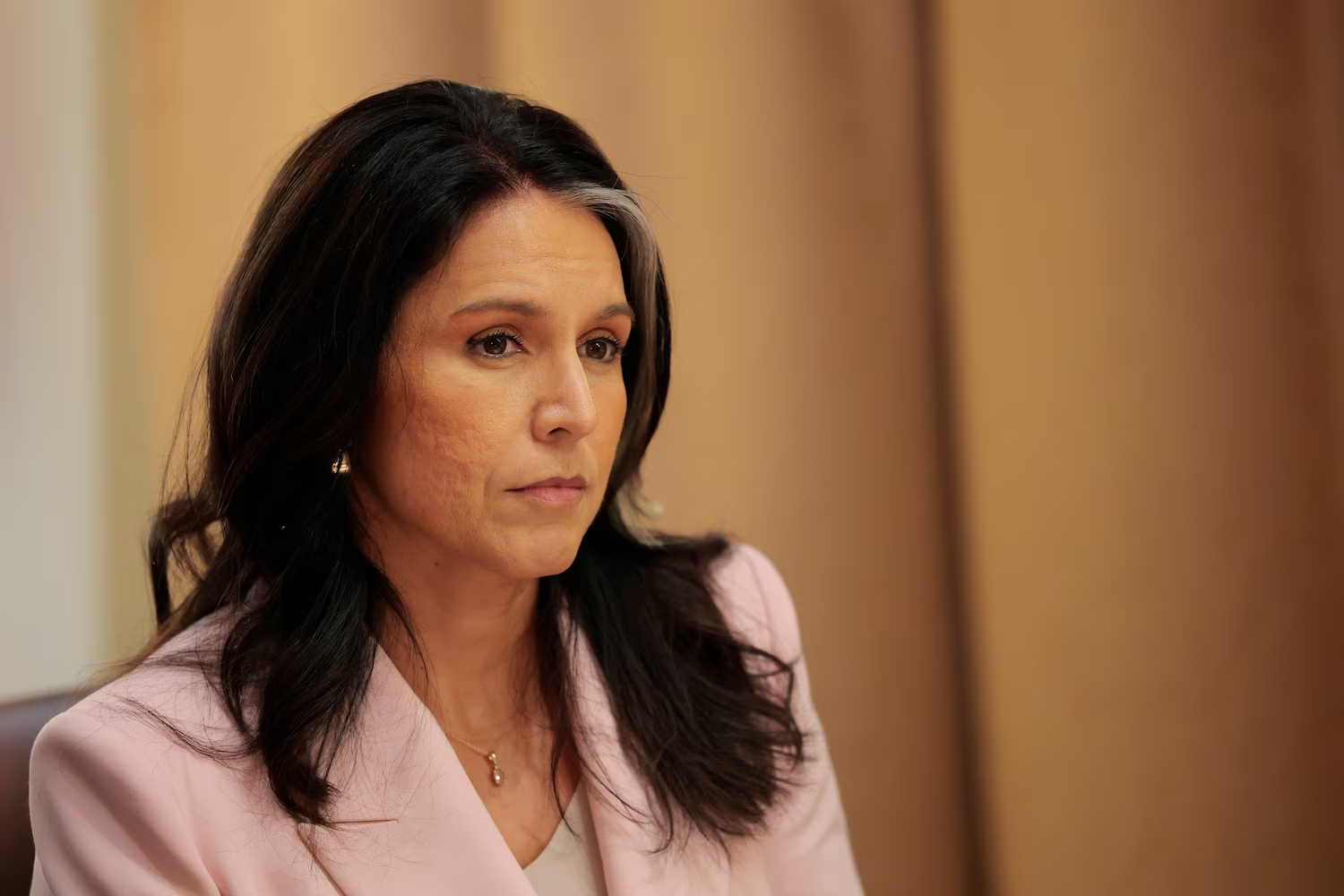In a powerful message that cuts through the noise of Washington politics, National Intelligence Director Tulsi Gabbard has issued a chilling warning about the growing risk of nuclear war, accusing America’s political elite and war hawks of pushing the nation toward a catastrophic global conflict.
Todd Geerlings Referee Obituary: Michigan Mourns the Sudden Loss of a Collegiate Officiating Giant
The warning came via a video posted on Gabbard’s personal X (formerly Twitter) account, just days after her solemn visit to Hiroshima, Japan—a city eternally etched into history as the site of nuclear devastation. More than a historical reflection, her three-minute video paints a sobering picture of what nuclear war might mean today, using San Francisco as a simulated ground zero and contrasting her urgent tone with Donald Trump’s past comments on nuclear issues.
“We’re Closer Than Ever to Nuclear Destruction”
Standing in front of the Hiroshima Peace Memorial, Gabbard spoke with visible emotion about the “haunting sadness” that still lingers in the air. She reminded viewers of the 100,000 lives lost in the 1945 bombing and warned that, far from being a historical relic, the nuclear threat is dangerously present today.
“This is not some made-up science fiction story,” she says. “It’s our reality. As we stand here today, we are closer to nuclear destruction than ever before. Political elites and warmongers are escalating tensions between nuclear powers.”
Her message is accompanied by drone footage of Hiroshima’s memorial site and a digitally-rendered simulation of a nuclear strike on San Francisco, showing the Golden Gate Bridge engulfed in a mushroom cloud. The visual is intentionally shocking, meant to jolt the public into realizing what’s at stake.
A Sharp Contrast with Trump’s Tone
Although Gabbard currently serves under the Trump administration as Director of National Intelligence, her message stands in stark contrast to the former president’s past remarks on nuclear warfare.
During his 2016 campaign, Trump dismissed President Obama’s visit to Hiroshima, saying, “Who cares?” and suggesting that Obama’s visit was “pathetic.” More recently, he downplayed the event’s significance, remarking, “Hiroshima wasn’t good, but it ended the war, maybe that was right.”
Gabbard, by contrast, takes a deeply moral and urgent tone, stating that leaders who believe they’ll be protected in nuclear bunkers are dangerously disconnected from the people they serve.
“They may believe they’ll have shelter for themselves and their families,” she says, “but ordinary Americans won’t. They’ll be the first and worst victims.”
A Long-Standing Anti-War Stance
This isn’t the first time Gabbard has spoken out about the dangers of war. During her 2020 presidential run, she gained national attention for criticizing neoconservatives, military contractors, and endless U.S. interventions abroad. In 2019, she warned that Trump’s withdrawal from the Iran nuclear deal had brought America dangerously close to war.
Her anti-war stance is rooted in her military service and a 2018 false ballistic missile alert in Hawaii, which left residents in a panic, believing they were under attack. That experience profoundly shaped Gabbard’s worldview and remains a driving force behind her efforts to prevent nuclear escalation.
A Call for Action and Accountability
In her Hiroshima message, Gabbard urges Americans to reject the current trajectory:
“We must end this madness—this path that leads only to destruction. We need a world where no one has to live in fear of nuclear holocaust.”
She stresses that rhetoric is not enough, and that meaningful disarmament and diplomacy must replace saber-rattling. Her warning comes at a time of rising global tensions with Russia, China, and Iran, in a world where war can be launched with the press of a button and retaliation can be immediate.
A Voice of Conscience Inside the Administration
Despite her affiliation with the Trump administration, Gabbard maintains a level of independence and moral clarity unusual for someone in her position. While she endorsed Trump’s 2024 run, her support came with clear caveats. At the National Guard Association conference, she criticized the Biden administration for waging “many wars on many fronts,” declaring that the U.S. is “closer to nuclear war than we’ve ever been.”
Gabbard’s office later sought to align her views with the administration, with Deputy Chief of Staff Alexa Henning telling ABC News:
“President Trump and Director Gabbard both support a world at peace. President Trump recognizes the irreversible suffering caused by nuclear war and supports efforts to prevent it.”
Still, the difference in tone is unmistakable. Gabbard’s sense of urgency and moral clarity stands apart from Trump’s more casual rhetoric on the subject.
A Wake-Up Call for America
In a time when many leaders are focused on elections, partisan squabbles, and short-term news cycles, Gabbard is sounding a rare alarm grounded in history, morality, and global responsibility.
Her video is not just a campaign or PR stunt. It is an emotional, strategic, and deeply personal appeal to Americans and their leaders to recognize the existential threat we all face—and to act before it’s too late.
As Gabbard said in the closing moments of her message:
“Peace is not passive. It must be pursued, protected, and demanded—by all of us.”

